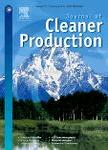版权所有:内蒙古大学图书馆 技术提供:维普资讯• 智图
内蒙古自治区呼和浩特市赛罕区大学西街235号 邮编: 010021

作者机构:Univ Engn & Technol Lahore Dept Ind & Mfg Engn Lahore Pakistan Hanyang Univ Dept Ind & Management Engn Ansan 15588 Gyeonggi Do South Korea Univ Engn & Technol Lahore Dept Mech Engn Lahore Pakistan
出 版 物:《JOURNAL OF CLEANER PRODUCTION》 (清洁器生产杂志)
年 卷 期:2019年第212卷
页 面:200-222页
核心收录:
学科分类:0830[工学-环境科学与工程(可授工学、理学、农学学位)] 08[工学]
主 题:Sustainable disaster waste management Greenhouse gas emissions Disaster waste recycling Social sustainability Possibilistic programming
摘 要:The phenomena of global warming have increased the frequency of natural disasters. These disasters generate thousands of tons of waste and cause loss of human lives, environmental damages, and economic losses every year. Currently, disaster response policies are reactive in nature to bring the community back to normal routine. However, increased resilience against future disasters can be achieved by working on long-term planning and setting goals for ecological, economic, and social sustainability in disaster response policies. Keeping in view the importance of the considered issue, this study proposes a large-scale disaster waste management supply chain model, considering economic aspect via total waste processing, environmental aspect by greenhouse gas emissions from disaster waste processing, and social aspect by job opportunities generated during waste processing. To demonstrate the applicability of the proposed supply chain model, numerical experiments are performed on a large-scale case problem. Results show that there is a strong trade-off among the dimensions of sustainability. If decision makers want to achieve higher satisfaction levels against environmental and social objectives, the operational cost of waste management will increase accordingly. Numerical studies obtain the results in accordance with the values of the confidence level of decision makers and coefficient of compensation decided by the managers which also provides the flexibility for the decision makers of developing countries to obtain preferred compromised solution in accordance with their own preferences for the dimensions of sustainability during disaster waste management operation. (C) 2018 Published by Elsevier Ltd.